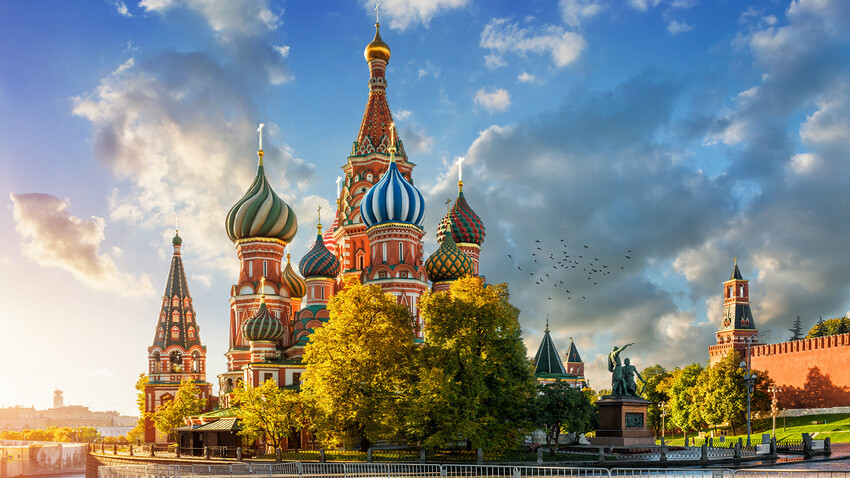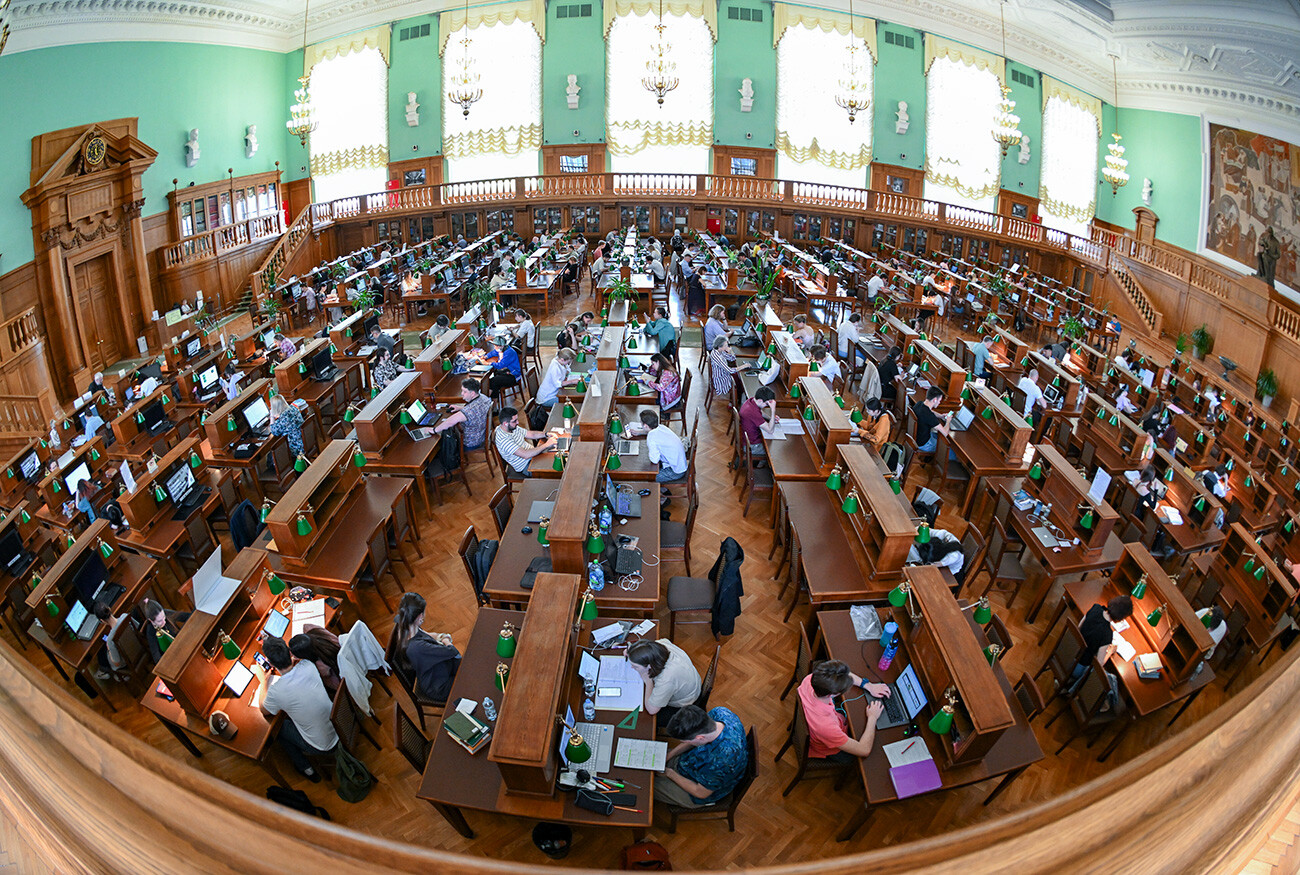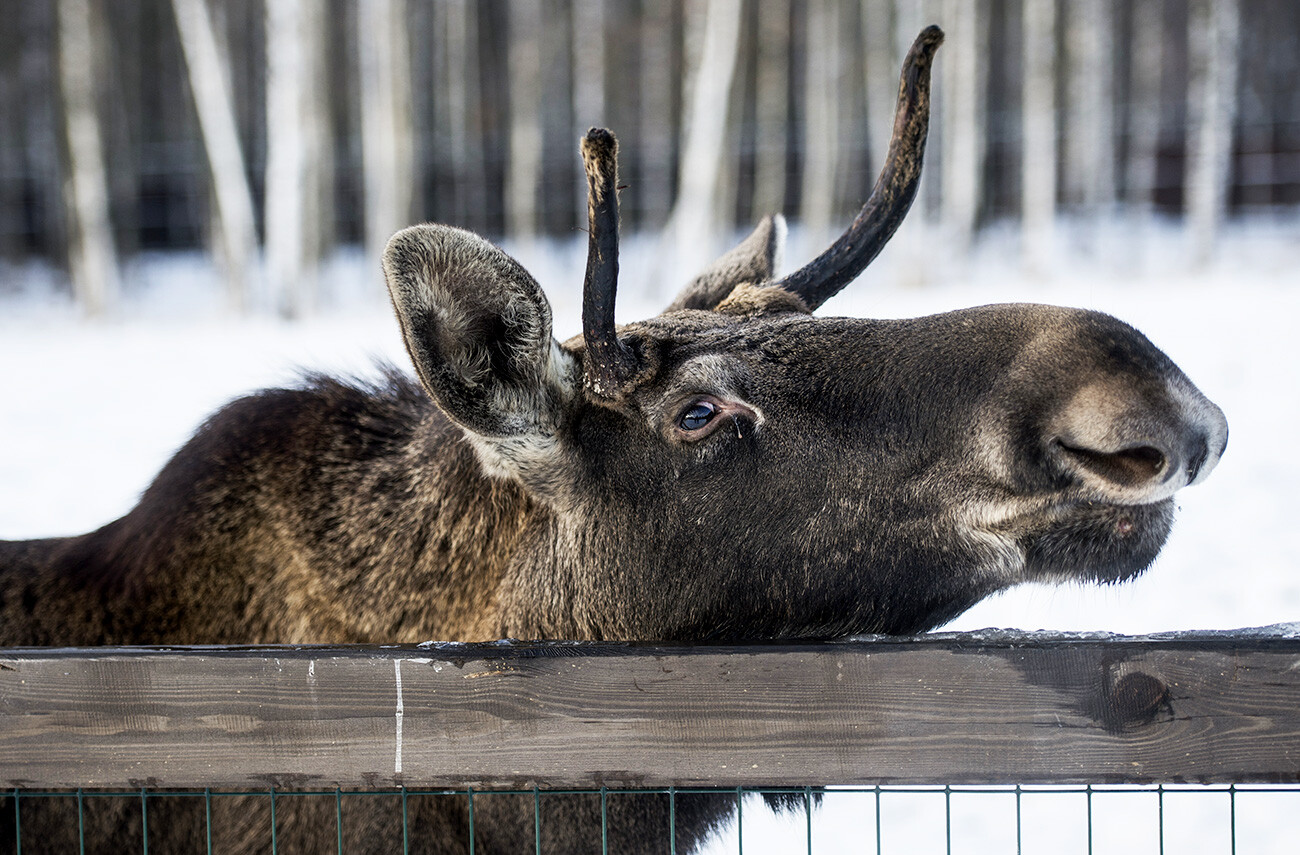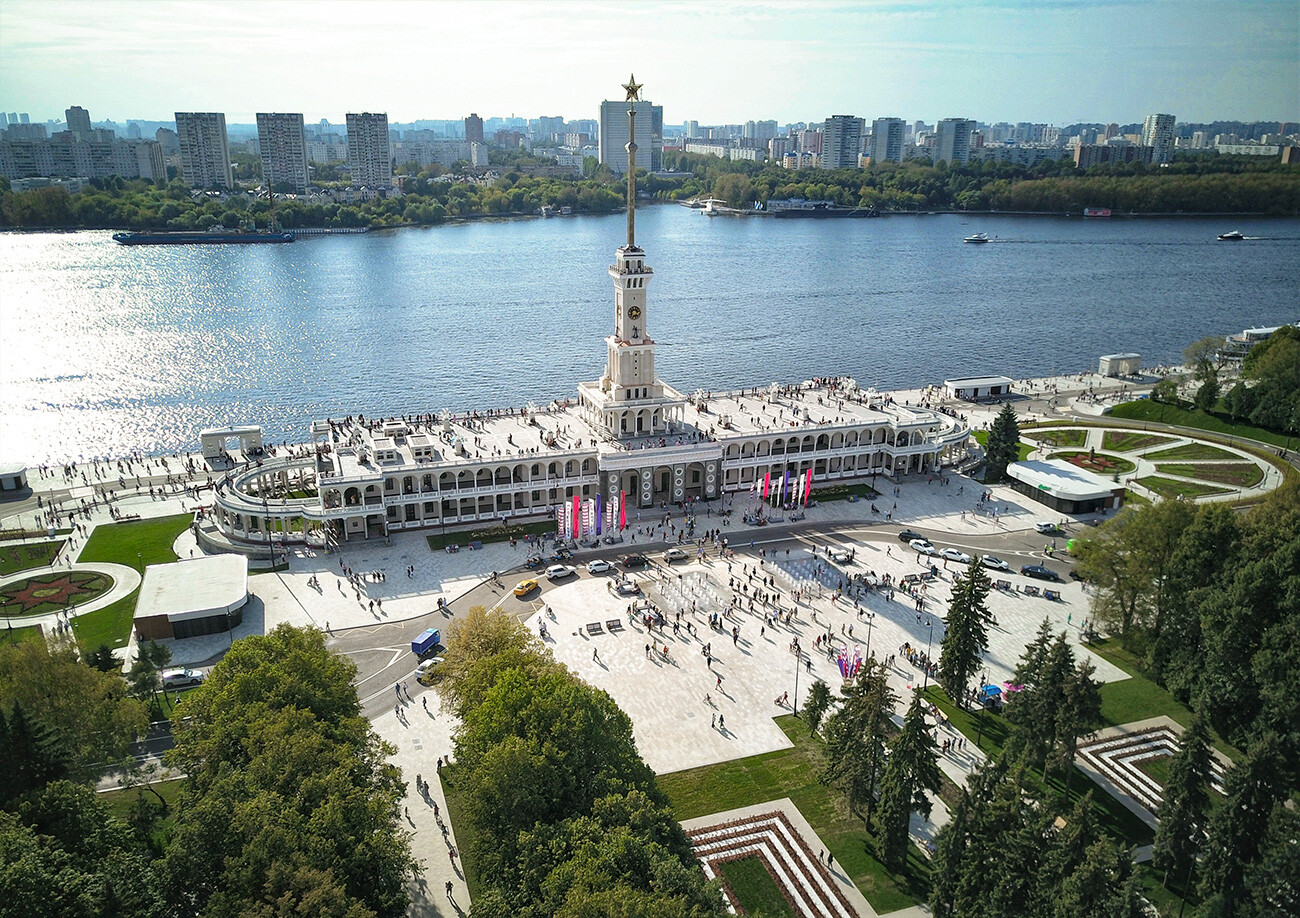

The capital is the world record holder for the amount of libraries – Moscow has more than 500. Among them is the Russian State Library with the largest collection of books in Europe. It holds more than 48 million books, scientific papers, journals and magazines. This collection is also the second largest by size in the world – with the Library of Congress of the U.S. taking first place with 164 million book units.

Along with wild boars, they live in the ‘Moose Island’ national park. The reserve itself is also notable – the park with taiga flora and fauna is located within the limits of the city!
Inside, there are dozens of walking paths; for a small fee, you can walk them and explore the untouched nature of Moscow Region. Also, there’s a Moose biological station on the territory of the reserve, where visitors can get to know the animal better and learn about their special peculiarities.

The first mass burial near the walls of the Kremlin fortress took place after the 1917 Bolshevik Revolution. The top officials of the state are buried there, as well as military leaders and even foreign citizens, who contributed to the development of communist ideas – for example, writer John Reed and Communist Party of Japan founder Sen Katayama.
As of today, the Kremlin necropolis has 115 urns with ashes; the main attraction of this place is a mausoleum, where the embalmed body of leader of the communist revolution, Vladimir Ilych Lenin, still lies.
By the way, the Kremlin is also considered one of the largest museums in the world – its area amounts to 28 hectares (0.28 square kilometers).

Moscow Metro on board train announcements are made in both male and female voices. The peculiar thing is, the male voice appears when you go from the outskirts to the center or when you travel clockwise on ring lines; the female voice appears when you go from the city center to the outskirts or counter-clockwise. This was mainly done to assist blind people in better navigating the metro.

There are regular tourist cruises from the capital to the White Sea and back. This sea is a part of the Arctic Ocean.
The Moskva River is a part of the Volga River basin (one of the largest rivers), so you definitely can cross the entire north-western part of Russia by water. You’ll need 6-7 days, on average, to make your way in one direction. Often, a cruise goes not only to the coast of the White Sea, but also further on to the Solovetsky Islands, which are located in its waters.
If using any of Russia Beyond's content, partly or in full, always provide an active hyperlink to the original material.
Subscribe
to our newsletter!
Get the week's best stories straight to your inbox